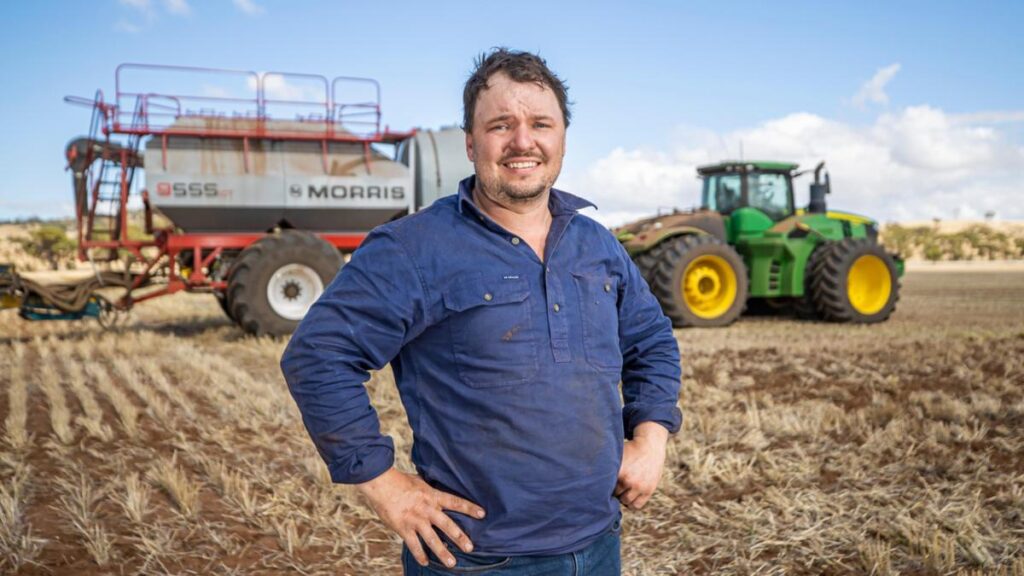York farmer Alex Davies says he is optimistic about the year ahead but, like most grain farmers this early in the season, is feeling the “pre-game jitters”.
Mr Davies was among many farmers in the Central Wheatbelt who started seeding unseasonably early this year, rolling his airseeder out of the shed on April 1 — three weeks ahead of previous years.
He made the decision ahead of predicted light rainfall in mid-April — which ended up totalling 17.5mm — and following the 19.1mm of rainfall that fell on his property in mid-March.
With two new crop varieties and a solid start to the year, the third-generation farmer said he did his best to set up the farm for positive results to come out of the 2025 season.
“With what was forecast and what we had in front of us, we thought we’d get into it early instead of worrying about the back-end of the season,” Mr Davies said.
“We had to play the cards we had in our hand at the time.
“It definitely was a good move. At the moment, I’m glad we did it — all of our canola is out of the ground and our oats are just starting to come through.”
This year, the Davies’ have put in 1000ha each of wheat, barley and oats on their 4000ha property, leaving the inarable land for roughly 2000 sheep.
Mr Davies said paddock germination was so far looking “pretty good”, considering the minimal rainfall they had recorded so far.
“It (the rainfall) is not bad but it’s not been the best season start we’ve had,” he said.
Mr Davies said was seeding barley and wheat this week, but was concerned with the lack of moisture forecasted in the coming weeks.
“It’s not the end of the world, I can’t change it. It’s too early in the season to worry about it yet,” he said.
The latest climate outlook from the Bureau of Meterology is forecasting the month of May to be dry across the entire country, with rainfall anticipated to be below average.
Mr Davies — who runs the farm alongside his father, Kevin Davies — stepped onto the farm in a greater capacity in recent years, transitioning to a full-time role while his uncle slowly transitioned out.
The ex-research agronomist said his work history and degree in agri-business played a role in developing his farming knowledge, but nothing beat learning directly from the source.
“It’s certainly helped but getting back on the farm and being able to work with dad and learn what I can off him has probably been the best,” he said.
Aside from current political pressures, the 2025 season has been much the same as last for the York farmers in terms of weather and their seeding program, Mr Davies said.
“We’ve got some new varieties in that are a bit of a change — Vortex wheat and Goldie oats,” he said.
“They’re two new varieties that we bulked up last year in a small area and we’re pretty happy with how they performed so I’m pretty excited to see how they’ll do this season over a bigger area.
“Our focus has also shifted to oats and canola this year as they were forecasted to be our best earners.
“We’re very lucky, we’ve probably had the best summer we’ve had for paddock clean-up and maintenance on machinery — credit to the guys working here for what we’ve been able to pull off.”
Mr Davies said York farmers were feeling “content” and “pretty-optimistic” about the season ahead but no one was getting too excited just yet.
“Seeding is like the start of a game — everyone runs out on the field with the jitters, trying to find their feet, trying to work out their opponents and what they’re going to do. . . that’s the excitement everyone’s got,” he said.
“Once we start to get halfway through the season, or towards the end of the game, you get a better feel if you’re winning or losing.”

